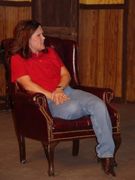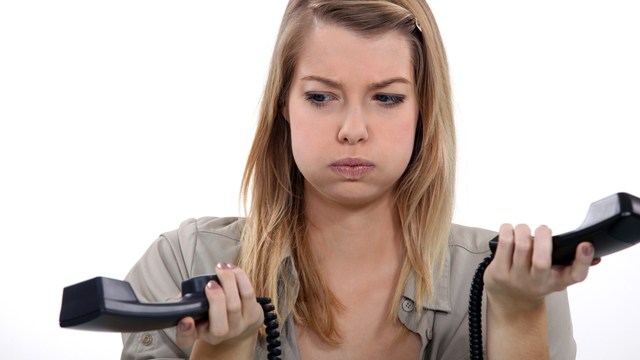Pulling out a couple hairs from the head can be painful, but imagine pulling out coin-sized sections of hair at once or gradual chunks by pulling one hair out at a time.
This can be the reality for those who have a severe form of trichotillomania, a hair pulling impulse control disorder.
There are different levels of severity and areas where an individual chooses to pull hair from, according to the Trichotillomania Learning Center (TLC) website. For example, any area of the body that has hair can be a candidate.
Although it is referred to as an impulse control disorder, the TLC said it can be considered to be a habit or addiction or a behavior that’s part of obsessive-compulsive disorder or a tic disorder. It is also a “part of a family of "body-focused repetitive behaviors" (BRFBs) along with skin picking and nail biting.”
The age of onset is usually 12 to 13, according to Mental Health America’s website. An abnormal psychology textbook said that one to five percent of college students have been observed with this disorder, and more females than males report having trichotillomania.
I have my own personal experience with a minor form of trichotillomania. When I was younger, I would pull hair out of my eyebrows and eyelashes. At one point, I remember some hair loss in those areas, though it never got to the point of baldness. I would also run my hands through my hair constantly and would sometimes pick hair out. Again, it was not to an extreme. These might seem to be more “normal” areas to pick hair from, but I also used tweezers to pick my leg hair.
Of course, this was all pretty embarrassing for me. I would usually do this in private, though it was such a habit that I would also do this in public and around family members. I faintly remember my grandmother scolding me in church and my parents telling me to stop and teasing me. However, I would always feel tension when I wasn’t allowed to indulge.
I was diagnosed as a child with obsessive-compulsive disorder, and other compulsions I had were to smell my hands and write almost every exact thing I did per day in a planner. This reinforces the resources I’ve read that suggest trichotillomania is a type of compulsion associated with OCD.
According to the OCD Center of Los Angeles’ website, tension can be relieved by the hair pulling. The hair pulling is usually “triggered by a negative mood state or occur[s] in response to stress, but may also occur while an individual is calm and relaxed.”
This is definitely indicative of my childhood experiences. Looking back, I think it was a way to relieve anxiety. I always felt a sense of relief after pulling hair, though I wasn’t always in a stressed state to begin with. Pulling out hair was also something to do when I was bored and needed to occupy my hands. Sometimes I would even feel a type of stress after, especially when my parents and grandmother called me out on my behavior and made me feel ashamed.
I remember my father bringing this behavior up to my psychologist or psychiatrist at the time. I always became agonizingly embarrassed and shy at the mention of my hair pulling and other weird compulsions. I was never diagnosed to my knowledge, but I also did my best to keep it away from my therapist and others due to my embarrassment. I didn’t see my depression and anger as embarrassing as these strange compulsions I had.
Eventually I decreased the amount of time I spent with these behaviors. It was probably a mix of the embarrassment and continued teasing from my family as well as a decrease overall in my OCD symptoms and an increase in depressive symptoms. I now have different ways of dealing with the above, usually by mentally controlling the impulses or indulging sometimes in private.
Although I still have some compulsions left over (and generally have my hands occupied in some way), they don’t necessarily interfere with my life or cause the same amount of embarrassment. Like the TLC website said, trichotillomania can be mild and “quelled with a bit of extra awareness and concentration,” at least in my case.
I never knew it was a disorder until recently, and I loosely associated it with my childhood experiences with OCD and the other compulsions I had and have. I actually tend to forget my OCD remnants because they have been with me for quite a while, and my depression seems more pervasive.
Cognitive behavior therapy and medication can relieve some symptoms. If you think you may have this disorder, see a mental health professional for more information and help.
Sources:
http://www.trich.org/about/hair-pulling.html
http://www.nmha.org/go/information/get-info/trichotillomania
“Abnormal Psychology: An Integrative Approach” by David Barlow and V. Mark Durand
http://www.ocdla.com/trichotillomania.html




Add a Comment2 Comments
Thank you for writing about this. I have ocd and run my hands through my hair alot, especially when stressed. When my father came to visit a couple years ago, after not seeing him for a long time, I started pulling hair from the top of my head until my husband noticed I had a bare spot. Knitting has helped keep my hands busy and calms me down. Working on my ocd has also seemed to help.
May 13, 2010 - 1:06pmThis Comment
That was enlightening. I remember some of these things but don't recall any teasing to an extreme. I tried to bring things to your attention and it may have come out negetive to you. In no way was I trying to embarrass you or hurt you but...I'm sure it felt that way. I have learned over the years to express myself better. I am glad you wrote this article.
May 11, 2010 - 1:27pmThis Comment